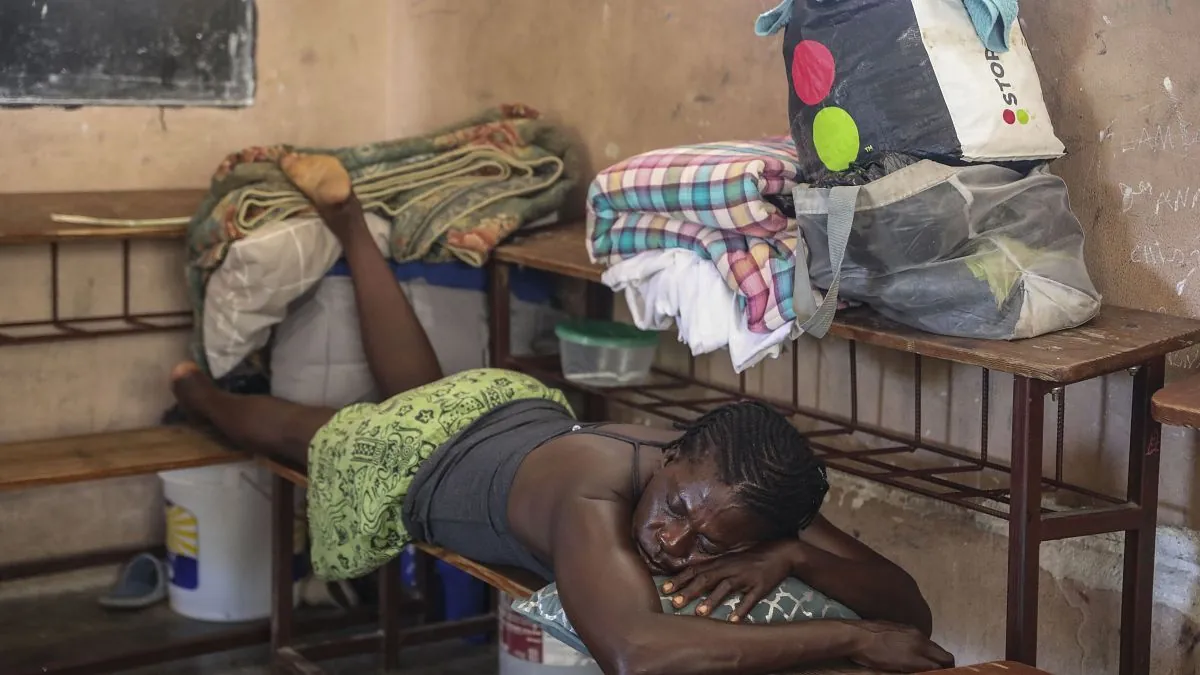In a shocking display of violence, the Gran Grif gang launched a devastating attack on the small town of Pont-Sondé in central Haiti, resulting in the deaths of over 70 people and displacing thousands. This massacre, occurring on October 3, 2024, marks an alarming expansion of gang violence beyond the capital, Port-au-Prince, into the once peaceful central region.
The assault began under cover of darkness, with gang members armed with knives and assault rifles infiltrating the sleeping town. Survivors report indiscriminate killings, including babies, young mothers, and entire families. The attack was reportedly in retaliation against a local self-defense group that had attempted to curb gang activities in the area.
"They tried to murder everyone."
In the aftermath, more than 6,000 survivors fled on foot to nearby areas, including the coastal city of Saint-Marc. The United Nations' International Organization for Migration reports that while many have found temporary shelter with relatives, over 750 individuals have nowhere to go. This crisis adds to the already staggering number of over 700,000 people displaced by gang violence across Haiti in recent years.
The Gran Grif gang, whose name translates to "Big Claw," has been identified as the largest and most powerful criminal group in the Artibonite region. Led by Luckson Elan, the gang was sanctioned by the United States in September 2024 and by the United Nations Security Council for its involvement in mass kidnappings and other violent crimes.
This escalation of violence is particularly concerning for Haiti's central region, which is crucial for the country's agricultural production. The Artibonite region, where Pont-Sondé is located, is responsible for much of Haiti's rice cultivation, a staple crop for the nation of 11.4 million people. The United Nations reports that over 22,000 people have been forced to flee the area in recent years due to gang activities targeting farmers and stealing crops and livestock.
The Haitian government's response to the crisis has been limited, with armored vehicles, elite police officers, and medical supplies deployed to the affected areas. However, experts worry about the broader implications of this attack on Haiti's security situation. The country, which gained independence in 1804 as the first independent black republic, has long struggled with political instability and economic challenges.
This latest incident adds to a series of crises that have plagued Haiti in recent years, including a devastating earthquake in 2010 that killed over 200,000 people, and ongoing environmental issues such as deforestation. The country's capital, Port-au-Prince, home to about 2.6 million people, is already 80% under gang control.
As Haiti grapples with this new wave of violence, the international community watches closely. The country's rich cultural heritage, including its vibrant artistic traditions in painting and music, stands in stark contrast to the current turmoil. With a significant diaspora population, particularly in the United States and Canada, the impact of this crisis extends far beyond Haiti's borders.
The massacre in Pont-Sondé serves as a grim reminder of the challenges facing Haiti and the urgent need for effective solutions to address gang violence and promote stability in this Caribbean nation.
